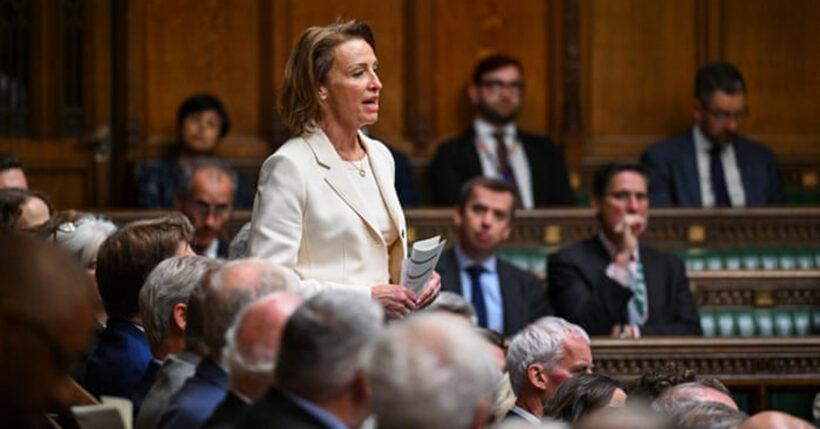💬 Reform UK chairman resignation ignites internal storm
The political landscape of the United Kingdom witnessed a significant upheaval when Zia Yusuf, the chairman of the Reform UK party, tendered his resignation on 5 June 2025. His decision to step down follows a highly publicized dispute surrounding the burqa — a symbol of religious and cultural identity that has become a flashpoint in British politics. Yusuf, a prominent Muslim businessman and key financial backer of Reform UK, openly criticized a fellow party member’s public call to ban the burqa. This disagreement escalated tensions within the party, ultimately culminating in Yusuf’s departure.
Reform UK chairman resignation has quickly become a focal point for discussions about the party’s direction, leadership challenges, and internal ideological clashes.
🏛️ Main Drivers Behind the Resignation
The resignation is best understood by examining three interrelated causes:
🔹 Burqa Ban Dispute
Reform UK’s newly elected Member of Parliament, Sarah Pochin, sparked controversy during Prime Minister’s Questions by advocating for the government to impose a ban on the burqa in public spaces. This stance sharply contradicted the party’s more moderate official position and was immediately challenged by Zia Yusuf.
Yusuf publicly described Pochin’s proposal as “dumb” and divisive, signaling a profound ideological rift. He argued that such policies alienate minority communities and threaten the party’s efforts to broaden its appeal beyond a narrow base. This public clash between the party chairman and a prominent MP underscored existing tensions and weakened party unity.
🔹 Leadership and Professionalization Tensions
Zia Yusuf’s role extended beyond symbolic leadership — he was a key architect of Nigel Farage’s vision to professionalize Reform UK. His efforts included restructuring party operations, strengthening internal governance, and expanding the membership base from a few thousand to tens of thousands.
However, Yusuf’s forthright approach and unwillingness to tolerate hardline rhetoric clashed with certain factions within the party, particularly those advocating for a more populist and socially conservative agenda. This friction exposed challenges in balancing political pragmatism with ideological purity.
🔹 Decision to Step Down: “Not Worth the Investment”
Ultimately, Yusuf concluded that remaining in his leadership role was no longer a viable or productive choice. He candidly remarked that pursuing a government led by Reform UK had become an “unworthy investment of his time”, citing growing disagreements and a waning alignment with the party’s evolving trajectory.
🎯 Impact on Reform UK’s Strategy and Leadership
The Reform UK chairman resignation has had profound consequences on the party’s internal dynamics and public perception.
🔸 Resignations and Operational Disruptions
Following Yusuf’s departure, other senior officials quickly followed suit, including Nathaniel Fried, who served as head of Efficiency. Fried’s exit was described as “long planned” but came at a critical moment, further complicating party management and operational continuity.
Such resignations at the upper echelons of Reform UK raised alarm bells about the stability of the party’s administrative functions as it prepared for upcoming elections.
🔸 Public Perception and Polling Strength
Despite these internal tremors, Reform UK maintained strong positions in recent opinion polls, leading in some key constituencies. Holding five parliamentary seats and scoring notable victories in local elections earlier this year, the party continues to demonstrate significant electoral appeal.
This dichotomy — public support alongside leadership upheaval — poses a unique challenge, forcing the party to project unity even as it contends with internal fractures.
🔸 Opposition Attacks
Labour and the Liberal Democrats seized upon Yusuf’s resignation as evidence of instability within Nigel Farage’s leadership. Opposition spokespeople accused Reform UK of being divided and unfocused, questioning whether it could effectively govern amid such public discord.
This political backlash increased pressure on Reform UK to manage its messaging carefully and prevent the issue from damaging voter confidence.
🔸 Leadership Vacuum and Possible Successors
Nigel Farage, founder and driving force of Reform UK, publicly expressed regret over Yusuf’s resignation but also criticized his former chairman’s interpersonal skills, describing his communication style as occasionally abrasive and “not for the faint-hearted.”
Farage reportedly began considering Arron Banks, a controversial political donor and figure aligned with hardline right-wing causes, as a potential replacement. Banks’ entry could signal a sharper ideological turn or risk further alienating moderate supporters.
⚔️ Historical Context & Internal Conflict
The party’s troubles have deep roots, extending beyond the burqa dispute. Earlier conflicts involved allegations of internal misconduct, including a referral to the police regarding party misconduct allegations against former MP Rupert Lowe. Although Lowe was never charged, these incidents contributed to an atmosphere of mistrust and instability.
Yusuf’s tenure was marked by significant organizational reforms. He implemented a performance-driven strategy, establishing Key Performance Indicators (KPIs) to measure growth and influence. The party’s membership numbers surged, and local branches expanded dramatically under his leadership. These achievements contrasted sharply with the current turmoil.
🌐 Political Ramifications
✅ Immediate Effects: Leadership Turbulence and Election Impact
As the autumn 2025 elections approach, the timing of Yusuf’s resignation poses strategic challenges. The party must reorganize its leadership quickly to maintain momentum in candidate selections, campaign strategy, and grassroots mobilization. Any prolonged instability risks undermining Reform UK’s electoral prospects.
❓ Long-Term Questions: Party Identity and Cohesion
Yusuf’s departure raises fundamental questions about Reform UK’s ideological future. The party faces a crossroads: should it continue pursuing a populist, socially conservative agenda that risks alienating moderate voters, or pivot toward a more centrist, professionalized political organization?
The tension between these approaches is emblematic of broader trends in British politics, where parties grapple with balancing base energization against wider appeal.
🔍 Moderation Versus Hardline Voices
Zia Yusuf’s exit might temporarily reduce hardline rhetoric, such as calls for burqa bans. However, it could also embolden fringe factions eager to push socially conservative or nationalist policies, potentially creating further divisions.
🤝 Looking Ahead: Potential Scenarios for Reform UK
-
Arron Banks Assumes Leadership
-
Banks is known for his outspoken views and substantial influence within UK right-wing circles. His leadership might drive the party further toward nationalist and populist policies, risking alienation of moderate supporters but energizing the core base.
-
-
Moderate Leadership and Stabilization
-
Reform UK could choose a centrist figure to succeed Yusuf, focusing on unifying the party and softening controversial messaging. This strategy might preserve recent electoral gains and broaden voter appeal.
-
-
Continued Fragmentation and Decline
-
If leadership disputes continue and more senior members resign, Reform UK risks losing cohesion, ceding ground to rivals like the Conservative Party and Labour, and diminishing its national relevance.
-
🔚 Conclusion: Reform UK at a Critical Juncture
The Reform UK chairman resignation represents more than just the loss of a key figure. It reflects the deep ideological fault lines and leadership challenges facing the party at a pivotal moment in British politics.
Zia Yusuf’s principled stand against a divisive policy highlighted tensions between Reform UK’s desire for broad appeal and pressures from hardline factions. How the party navigates these challenges — in leadership selection, policy formulation, and public messaging — will determine whether it can evolve into a credible governing force or splinter under internal pressures.
The next few months will be critical for Reform UK’s survival and its ability to influence the UK’s political future.
For more updates, explore the Current News. Feel free to share your thoughts and comments.
If you’re passionate about building a successful blogging website, check out this helpful guide at Coding Tag – How to Start a Successful Blog. It offers practical steps and expert tips to kickstart your blogging journey!






